In Praise of Nick Cave
Greetings friends,
Few artists can command a stage—or a room—as completely as Nick Cave. Watching him and his band — The Bad Seeds — tear the roof off the Barclays Center in Brooklyn last night felt like witnessing a force of nature.
A side note: We weren’t allowed to bring our cameras into the arena, so I had to rely on my iPhone. Section 211, Row 6, Seat 4.
”Fucking Brok-lyyyyyn”, he yelled as he and the Seeds took the stage, and the crowd of 20,000 exploded with thunderous applause. The man knows how to make people like him.
The performance was more than a concert. It was a communal experience, equal parts sermon, séance, and catharsis. Cave’s ability to move seamlessly between the thunderous and the tender, the sacred and the profane, is a testament to his artistry.


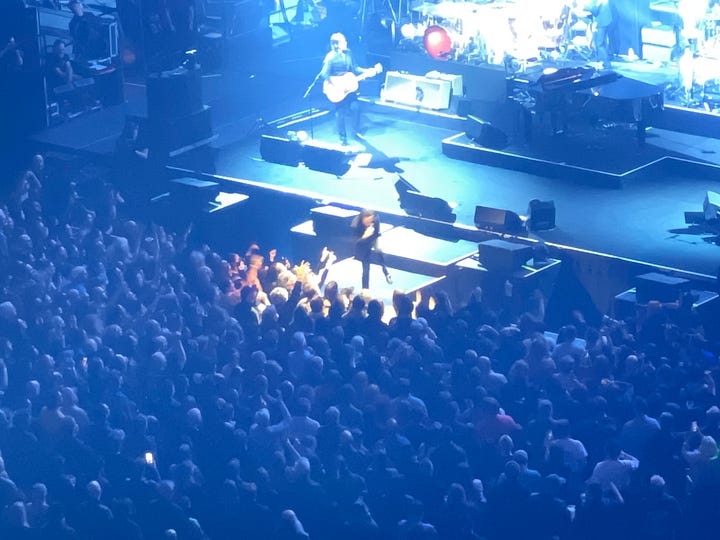
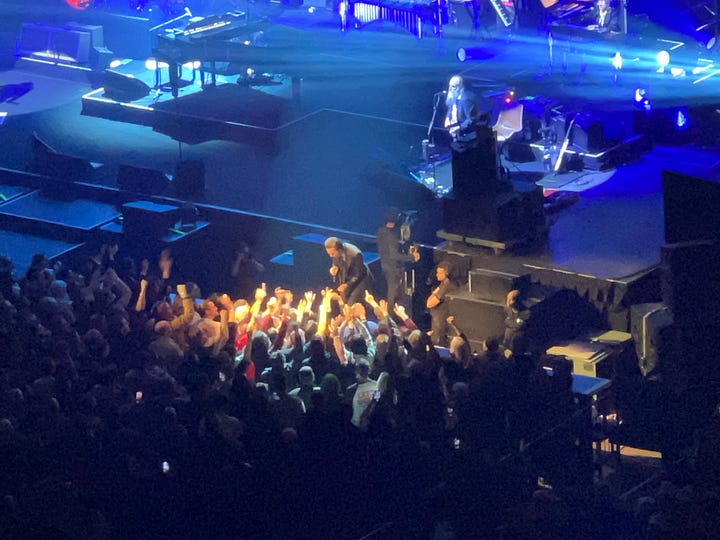
Nick Cave’s songwriting has always been preoccupied with the big themes—death, love, faith, loss, and redemption. From the violent poetry of his early days with The Birthday Party — Release the Bats — to the haunting beauty of albums like Skeleton Tree and Ghosteen, Cave’s lyrics probe the darkest corners of human experience, yet always leave room for hope and transcendence.
His songs are not just stories; they are invitations into the uncanny and unfamiliar, places “where true meaning exists,” as Cave himself puts it. He describes his creative process as a “commitment to uncertainty,” embracing the unknown in search of something beyond comprehension. David Lynch was a fan, naturally.
The significance of Cave’s songwriting is not lost on his peers. Matt Berninger of , The National and himself a master lyricist, has gone so far as to say,
“For me, Nick Cave is the best songwriter alive. And I’m aware Bob Dylan is still with us. Nick Cave has even gone past Cohen and Tom Waits for me – and that’s my trinity”.
Nick Cave’s work—on stage, on the page (check out his newsletter The Red Hand Files, and in film (yes, he’s also a talented screenwriter —The Proposition) reminds us of the value of doubt, vengeance, the necessity of the sacred, and the transformative power of art. His willingness to grapple with life’s hardest questions, and to do so publicly, is what makes him not just one of the great songwriters of our time, but a vital cultural voice.

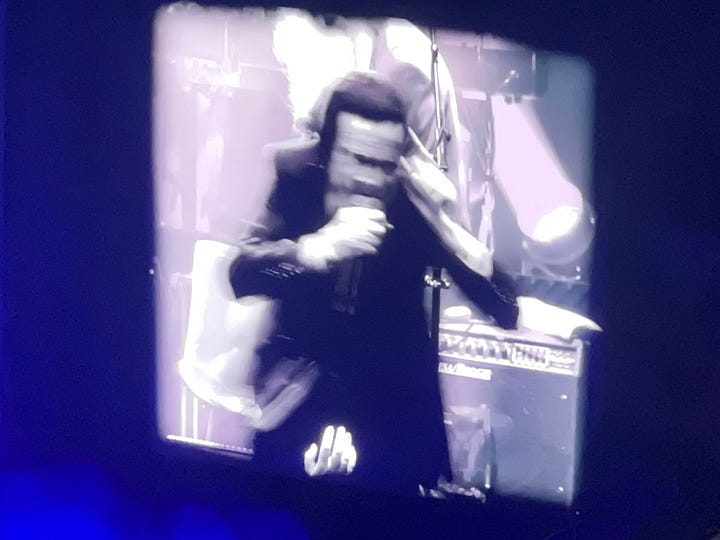
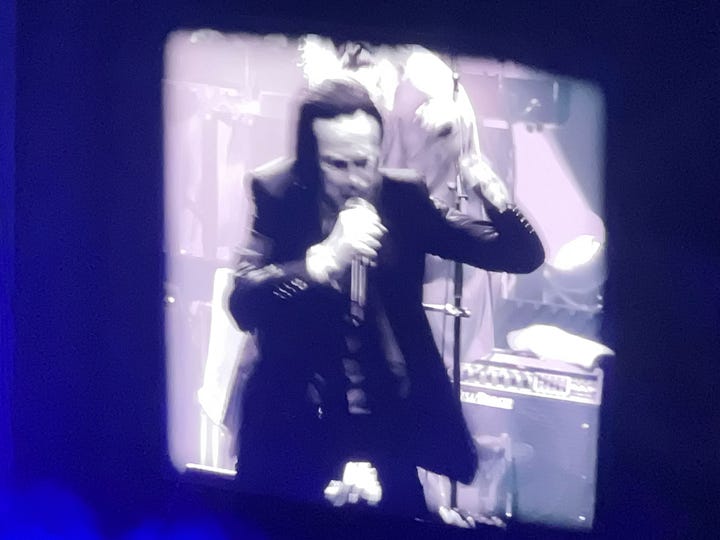

The Red Hand Files, has become an online phenomenon —a direct, unfiltered conversation between Cave and his fans. They (and by “they” I mean “we”) ask him (and by “him” I mean Cave) questions on everything from creativity and grief to the meaning of life, offering wisdom, vulnerability, and often sick humor. I don’t know why he ignored my question —
“Your rendition of Bob Dylan’s song “Death Is Not the End” adds a communal, almost liturgical feel with multiple voices. Was that your intention from the start, and how do you think your interpretation reframes Dylan’s original?”
— and instead chose to answer a question about depression and what he eats for breakfast. Whatever. He’s Nick Cave, after all, and I’m just Alex.
As one observer put it, “Nick Cave’s Red Hand Files stands out as a beacon of authenticity and intimacy. It is a testament to Cave’s unwavering commitment to his art, his fans, and the power of human connection”.
Nick Cave’s art has always been animated by a restless search for meaning, a deep engagement with the sacred, and a refusal to settle for easy answers. During last night’s performance, as he moved from the ferocious energy of new songs from Wild God (he opened with my favorite song on the album — “Frogs”) to the aching intimacy of “Into My Arms”— he reminded us that beneath the thunder and myth, Nick Cave always reaches for something tender, human, and true.
But Cave’s importance goes far beyond the stage. His writing, both in song and in prose, is a meditation on faith, doubt, grief, and the possibility of transformation.
Cave’s relationship with religion is complex, nuanced, and central to his creative life. In his book-length conversation with journalist Seán O’Hagan, Faith, Hope and Carnage, Cave articulates how belief and doubt are not opposites but necessary companions.
“From where I’m standing, an explicit rejection of the divine has to be bad for the business of songwriting. Atheism has to be bad for the business of making music. It has to put you at a distinct disadvantage because it’s a kind of narrowing of options and a denial of the fundamentally sacred dimension of music. It’s very limiting, in my experience.”
For Cave, religion is “spirituality with rigour.” He sees faith and God as both the search itself and the destination, arguing that “the question is itself the answer.”
Cave also recognizes the importance of doubt, not just in matters of faith but as a guiding principle in life and art:
“Doubt, or not quite knowing, is not just something that I have in regard to religious things, but to the world in general, I would say. It’s actually become more and more for me almost a political point of actually not really knowing. It works in that you remain curious about things, and you become open to things. Curious to things and you don’t become dogmatic and strident about things, which, as far as I can see, around these sorts of topics we all become. And I don’t feel I have, at the end of the day, the authority to be that way. And there’s an arrogance and a kind of godlike notion around that, that I find uncomfortable.”
Here’s what I’m getting at: To see Nick Cave live is to understand the enduring power of song to unite, heal, and provoke. To read his words is to glimpse the mind of an artist who refuses to shy away from life’s deepest questions. In a world saturated with noise, Cave’s work reminds us of the value of sincerity, risk, and the search for meaning. For those reasons and more, Nick Cave deserves every ounce of praise we can give.
Thanks for reading and being a subscriber.
‘Til next time.
ak




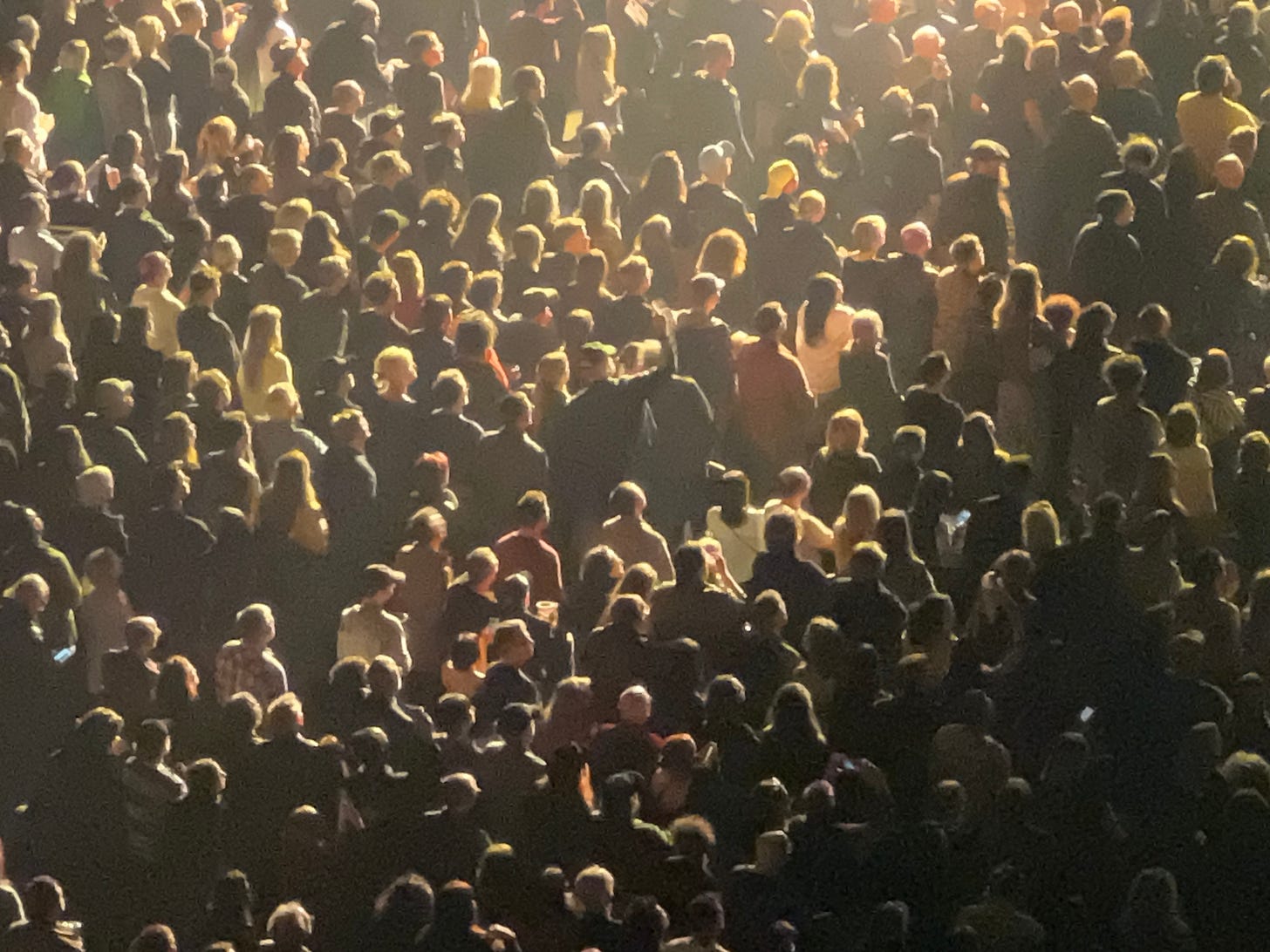
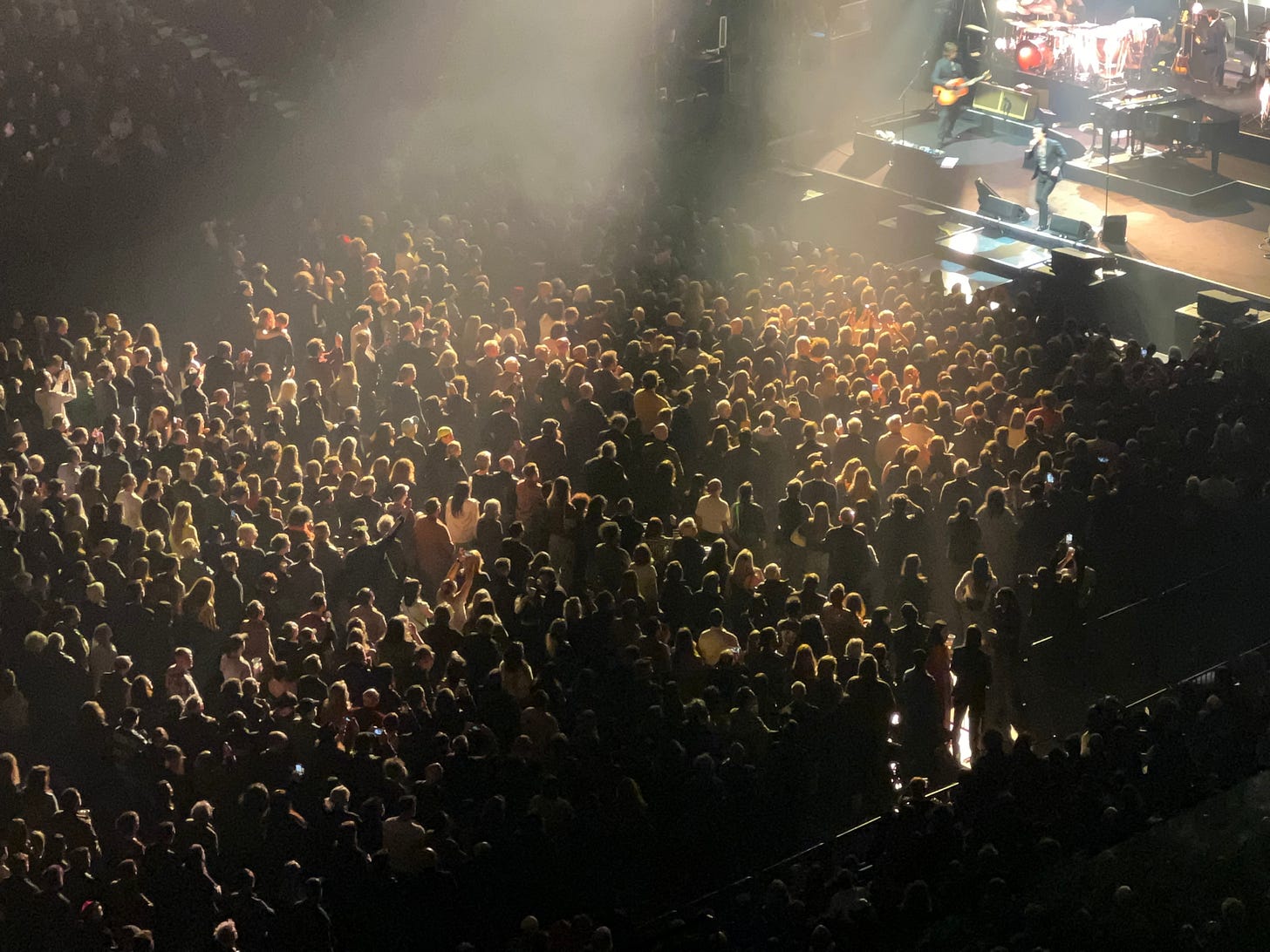
Wish I was there. I believe in the church of rock and roll.
Hello fellow adorer of Nick Cave. I saw him last November in Cardiff and agree wholeheartedly with you all you write. What a wise, talented, brilliant man.